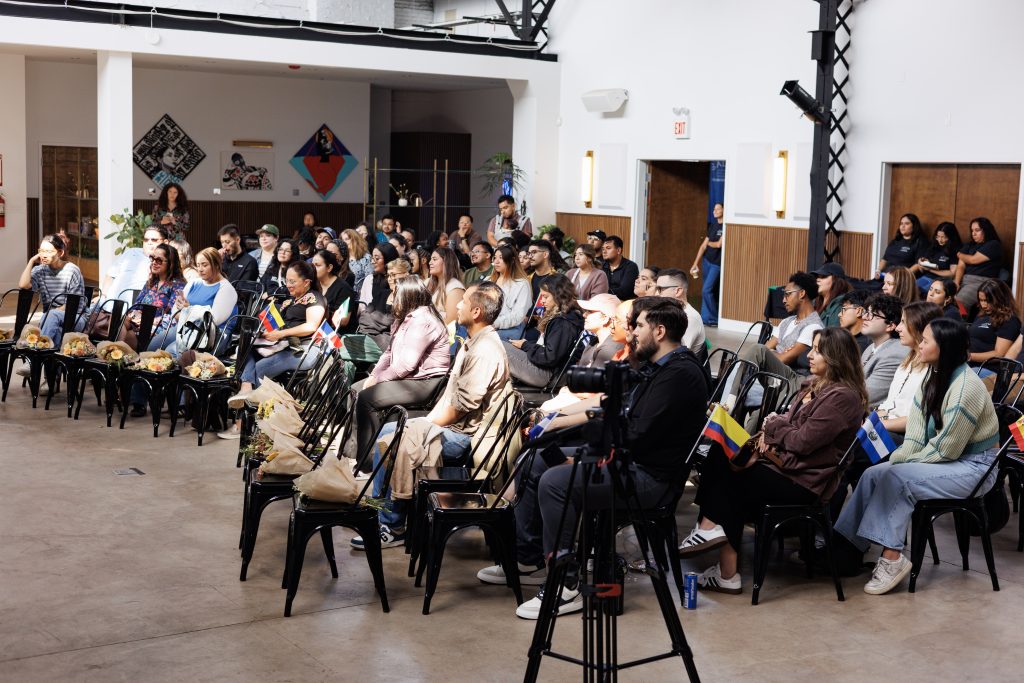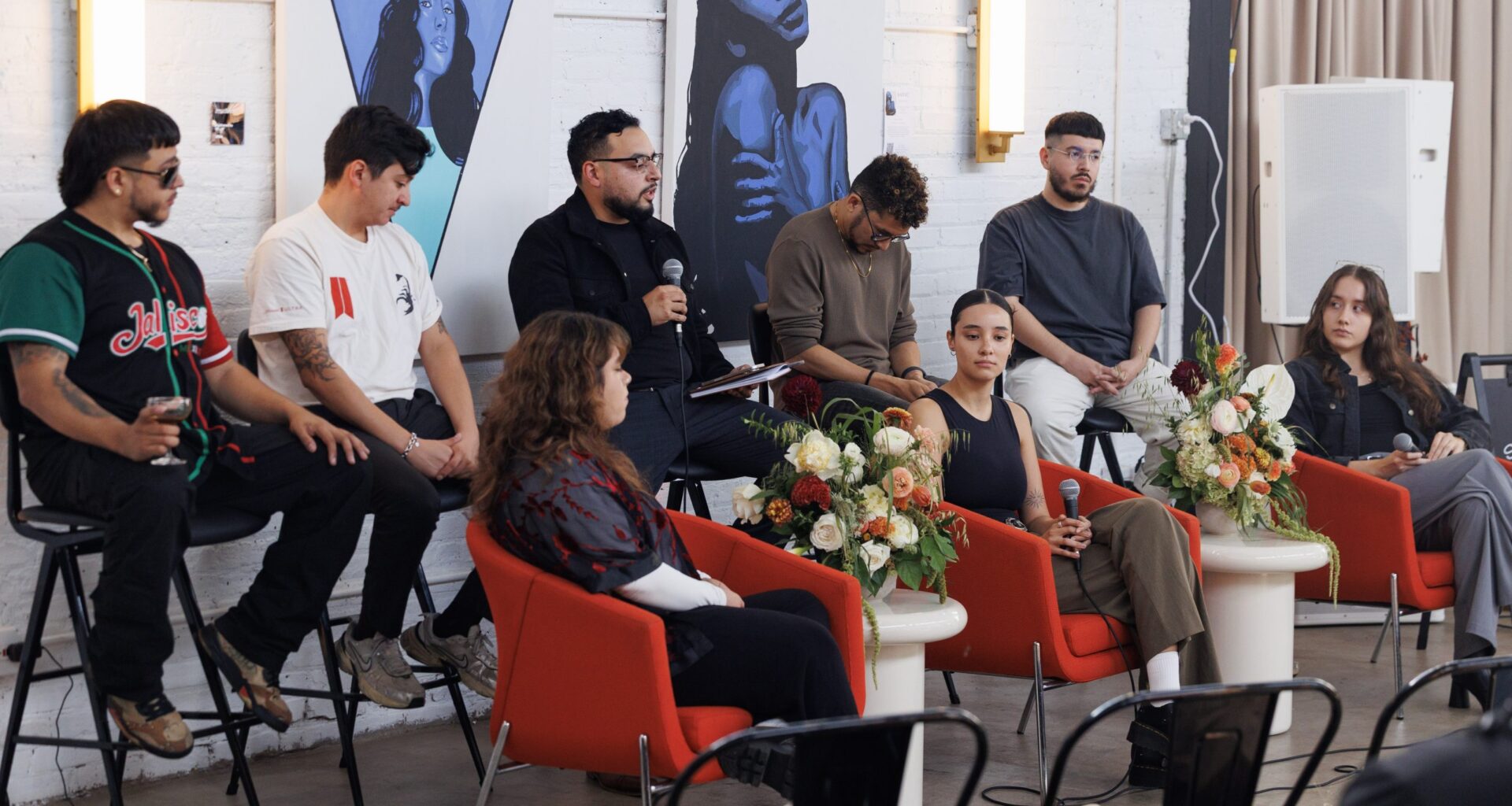PILSEN — A Latino man is leading a group working to normalize mental health care among Chicago’s Latino and immigrant communities, who are being impacted by Trump’s immigration crackdown.
Ricardo Camacho, a bilingual psychologist, Loyola professor and son of Mexican immigrants, started Salud more than two years ago to make mental health care more accessible to Latinos — and to make more people feel comfortable seeking it. Now, as immigrants face fear and anxiety from recent immigration enforcement operations, the need to access mental health care and “healing” is even more important, Camacho said.
Salud organizes mental health-focused community talks and healing circles that use evidence-based approaches. On Monday, the group is hosting a bilingual online mental health healing session, “Salud Immigrante,” which is Spanish for immigrant health. The free session starts at 6 p.m.; you can register here.
More sessions could be held if there is a need for them, and Salud will soon launch community healing circles and men’s therapy groups, Camacho said.
“Mental health, community and culture” are at the core of Salud’s model, marking a shift away from traditional individualized therapy. Instead, Salud aims to create safe spaces where people can come together, see they are not alone in their struggles and find ways to heal, Camacho said.
“When you approach mental health collectively as a community, we can all see that we’re facing similar challenges together,” Camacho said. “We might have different, varying identities, different ages, different even races, genders, but at the end of it, we’re facing this together.”
In recent weeks, Salud has created online guides to help families discuss immigration-related topics and regulate their emotions.
“We’re meeting people where they are,” Camacho said.
One in five Latinos has a mental illness, and only 36 percent receive care, according to a 2023 study of national data by the American Psychiatric Association.
 Dozens of people attend a community mental health conversation hosted by Salud at a Pilsen venue. Credit: Provided/Salud
Dozens of people attend a community mental health conversation hosted by Salud at a Pilsen venue. Credit: Provided/Salud
Barriers to mental health care can include housing, insurance and income struggles amid rising costs of living and health insurance, which can be especially steep among Latino and immigrant communities, Camacho said.
“All these are basic needs that people don’t understand are impacting their mental health and access to care,” he said.
Additionally, cultural barriers and beliefs among Latinos may prevent them from seeking help or talking about their feelings — guilt, stigma, shame, being afraid of showing one’s vulnerability, Camacho said.
Salud aims to bridge these gaps through awareness and education and by hosting conversations in local businesses, nonprofit spaces and in neighborhoods with significant Latino populations.
How To Have Conversations About Mental Health And Immigration
One of Salud’s new guides provides information for people about how they can have conversations with their immigrant parents about mental health amid a surge in immigration enforcement operations. One in three Chicagoans have at least one immigrant parent, according to Salud’s guide.
“Mental health also looks different for all of us. They may not ask for help, but our parents need it now more than ever,” according to the guide.
To start these conversations, Salud shares strategies and responses for what an immigrant parent could say. If parents downplay their emotions, they could say, “It’s not a big deal. Others have it worse,” according to the guide.
In response, their adult children could say, “Just because you carry it well doesn’t mean it isn’t heavy. I feel like this, too. You make me feel better knowing we can face these challenges together,” according to Salud.
In another guide, Salud offers five steps for parents to talk about immigration enforcement activity with children ages 4-17. The guide reminds parents to create safety plans and not to wait for their children to ask about what is happening. Instead, it encourages parents to have age-appropriate conversations with their children, ask them about their feelings, remind them of their roots and listen to their needs.
Camacho recommends immigrants, members of mixed-status families and Chicagoans stay informed. But that goes beyond knowing what is happening: It is about identifying trustworthy sources and trusted individuals who can help people with specific situations causing anxiety or fear, he said.
“There have been rumors of ICE targeting children and students. Identifying someone in the school who you can call and provide a direct answer about what is happening, it can reduce fear,” he said.
Salud’s mental health group conversations also follow that approach by creating a space where people can talk about their feelings and challenges, learn about self-care, heal and become empowered.
“I don’t want to be a mental health professional that advocates for coping to what is going on right now,” he said. “There’s a difference between coping and healing. Are you being sedated? Or are you in a space where you’re being supported to actually heal and outgrow all this injustice?”
Listen to the Block Club Chicago podcast:

